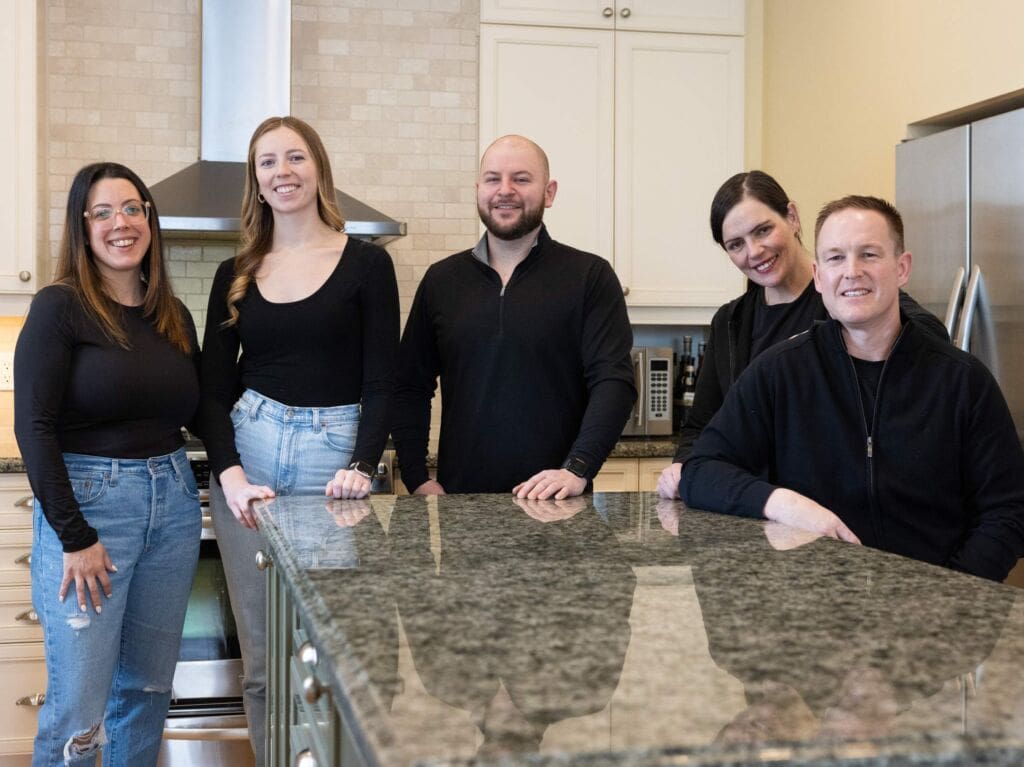Every time you turn on the TV, there’s a show about a married couple or a group of friends buying houses to fix up and resell or renting out old hotels. In addition, you may see signs and advertisements promoting various courses and mentoring programs for getting started as a real estate investor.
With so much going on, it can be hard to get the whole story. Is real estate your one-way ticket to financial success and freedom? Or is it a risky venture you should avoid at all costs?
The truth is more complex, and it’s essential to have all the facts before diving into anything drastic.
Interested in getting started as a real estate investor? We have many resources to help you:
- How to Find a Great Tenant
- How To Be a Millenial Landlord
- Preparing Your Cottage as a Short Term Rental
The Truth About Real Estate Investing
The truth is that real estate is still one of the safest and most secure ways to grow your wealth and equity, even in this hectic market. However, it is not, and never will be, a way to get rich quickly.
You may hear stories of people flipping houses and making hundreds of thousands of dollars in a single month. But success stories like these are rare and often wildly exaggerated. In fact, house flipping can be one of the riskiest investments, and the government is busy working on tax legislation to discourage the practice.
What other vehicles are available to you, and what is the best way to get started as an investor?
Information is Power
The best way to get started in any new venture is to create realistic goals and expectations and arm yourself with accurate information. This article will take you step-by-step through the different concepts you’ll need to understand as a real estate investor, the vehicles available to you, and the risks involved.
What is the Property Ladder?
The “property ladder” is one of the most fundamental concepts in real estate. If you are currently renting, then you’re not on the ladder. When you buy your first starter home, then you have just landed yourself on the first rung of the property ladder. Even if it’s a tiny house in the middle of nowhere, it’s still an excellent first step. Property values are soaring all over the country, and there is no sign of prices coming down. The sooner you can buy your first home, the better off you’ll be.
When you reach the first step of the property ladder, great things can begin to happen. As a homeowner, your equity grows with every mortgage payment, and your buying power increases.
How Building Equity Grows Your Wealth
Equity is the difference between what you owe on your mortgage and what your home is currently worth. When you pay rent, that money is gone forever. But when you pay down your mortgage, you build wealth. How?
Imagine that you paid $400,000 for a one-bedroom condo one year ago. Every month, you make a payment. Some of it is interest, but a significant portion pays down the principal of your loan. Many financial advisors refer to equity as a “forced savings account.” But your equity doesn’t just grow by making mortgage payments. It grows as the value of your property naturally appreciates over time.
For example, a lot can happen in a year. More and more people move into your town, and they all need a place to live. However, there aren’t enough houses to meet the demand, so the value of your property increases.
A year later, your tiny condo is now worth $500,000. Your equity has increased by $100,000, plus all the payments you’ve made toward your loan principal.
Why is equity important? The more your equity grows, the more purchasing power you have. Increasing your equity by $100,000 gives you options you didn’t have a year ago when you were still renting.
Passive Income
Passive income is money you earn without having to work for it. How can investing in that first condo a year ago help you create passive income? There’s only one bedroom, and there is no extra space to rent out. However, now that you have more equity, you may qualify for a bigger mortgage loan.
Perhaps you can now afford a down payment on a much larger home. Imagine your new property has three bedrooms, but you only need two. You can take on a renter and turn that extra bedroom into a monthly source of passive income.
Now, you’re officially a real estate investor! Renting a single room is one of the easiest ways to get started as it doesn’t require a large upfront investment beyond the purchase of the house.
What Are The Risks?
Nothing is without risk, but overall, real estate is one of the safest investments. Renting a single room is one of the least risky ways to get started. However, there’s always the chance of getting a tenant who doesn’t pay rent, or worse, is difficult to live with.
You can reduce this risk by performing extensive credit and background checks and getting a signed lease agreement.
The benefit of renting a room is that your wealth and equity will grow faster as the income will cover a significant part of your mortgage. Soon, you’ll be on your way to even more lucrative ventures. What happens next?
Secondary Suites
Secondary suites will come up quickly when you begin looking into investments. Simply put, it’s a separate unit you can rent out on your own property. You can renovate your basement into a legal apartment. Or you can build a garden suite or coach house on your lot.
Of course, the more money you spend on renovations, the more risk you undertake. It’s essential to budget carefully to ensure the rental income will cover enough of the loan to make your investment worthwhile.
However, many homeowners love this option because it provides passive income and increases your equity by adding value to your property. Best of all, it’s an entirely separate unit and provides far more privacy than renting a room or even a basement apartment.
You may be satisfied at this level as a real estate investor, or you may want to go even further up the property ladder.
Is building a secondary suite right for you? If so, these articles are an excellent resource:
- How to Build Equity and Improve Home Affordability With Secondary Suites
- Everything You Need to Know About Carriage Homes and Secondary Suites
- A Guide to the New Coach Home Rules in Peterborough
Buying An Investment Property
The population is growing in almost every city across Canada, so there will likely always be many people looking for rental units, especially if there is a nearby college and university.
As your net worth and borrowing power grow, you may qualify for a second mortgage, which would allow you to buy a completely separate property to rent out.
Owning two properties is one of the fastest ways to build wealth, as you’ll collect more rental income and both properties continue to increase in value.
Buying a second property can be risky if you overextend yourself financially. Finding the right tenant can take time and patience, and you’ll need to make sure you have enough savings to carry the property if it is vacant for longer than you expect.
And as always, you’ll need to vet your potential tenants carefully to ensure they have a history of paying their rent on time.
Multi-Unit Rentals – The Highest Step of the Ladder
With every successful real estate purchase, your purchasing power keeps increasing. At this point, you might reach the highest step of the property ladder, where you own multiple properties and rental units. This could mean buying a duplex, triplex, or even a small apartment complex. The more tenants you can accommodate, the more passive income you stand to generate.
Owning multiple properties may sound riskier, but in many ways, you actually have more security. Why? If you have one rental unit and lose your tenant, you lose 100% of your rental income. However, if you own ten units and one sits vacant, you’re only down 10%. The proceeds from the other apartments may even cover your expenses until you find a new tenant.
The Last Step
There may come a time when you no longer want the pressure of being a landlord. If that happens, you have a few options. If you have enough cash flow, you can hire a property manager, which allows you to hold on to your investments.
Another option is to pass your property on to your children or grandchildren to create generational wealth.
Or, you can sell off one or all of your properties and cash out your investment.
Selling an investment property with tenants can get complicated, but these tips will help.
Each option may have tax implications, so it’s critical to consult with an accountant or financial advisor.
Are you ready to take the first step as a real estate investor? The market may feel intimidating, but a professional Realtor® can help you analyze your resources and guide you to the best path for success.
Want to have a conversation about your goals with no obligation or commitment? We are happy to meet with you to answer your questions. Book your free meeting here!

Let Us Guide Your Journey
Curious about your real estate options? Relocating to the Peterborough area? Our experts are ready to help.








